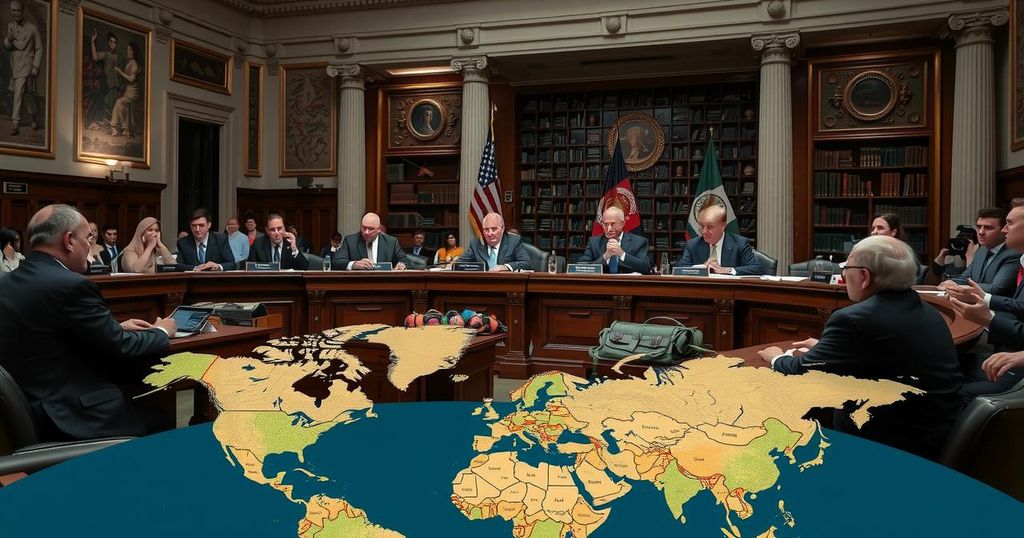World news
” MCCAUL, AFGHANISTAN, AMERICA, AP, ASIA, BIDEN, BLINKEN, CONGRESS, DEMOCRATIC NATIONAL CONVENTION, ELECTION, FAR, HOUSE FOREIGN AFFAIRS COMMITTEE, HOUSE REPUBLICANS, JOE BIDEN, PRESIDENTIAL CAMPAIGN, PRESIDENTIAL DEBATE, TALIBAN, TEXAS, U. S, U.S. ELECTIONS, U.S. PRESIDENCY
Fatima Alavi
0 Comments
Blinken Defends Afghanistan Withdrawal Amidst GOP Criticism
Secretary of State Antony Blinken faced congressional criticism regarding the U.S. withdrawal from Afghanistan, termed as a failed policy by GOP members. During his testimony, he defended the Biden administration’s decisions based on agreements made by Trump. The chaotic exit, resulting in the Taliban’s swift control, has been scrutinized, revealing failures under multiple administrations. Protesters interrupted Blinken, emphasizing the emotional impact of the withdrawal on families of service members.
On Wednesday, Secretary of State Antony Blinken testified before the House Foreign Affairs Committee regarding the tumultuous withdrawal of U.S. forces from Afghanistan, a significant moment in President Biden’s tenure. During his testimony, Congressman Michael McCaul, a Texas Republican, condemned the withdrawal as a triggering event for a failed foreign policy, stating, “This catastrophic event was the beginning of a failed foreign policy that lit the world on fire.” In response to the emotional setting, Blinken expressed condolences to the families of U.S. service members who lost their lives during the withdrawal and faced interruptions from demonstrators.
Defending the Biden administration’s approach, Blinken argued that the withdrawal deal negotiated by former President Trump left no feasible alternatives, asserting, “To the extent President Biden faced a choice, it was between ending the war or escalating it.” He noted that had the administration not adhered to Trump’s commitments, it would have led to renewed attacks on American forces and further Taliban advances. His testimony came amidst intense criticism from House Republicans, who attributed the chaotic end of the withdrawal to Biden’s leadership while minimizing Trump’s responsibility.
The Republican-led inquiry assessed the failures that allowed the Taliban to swiftly regain control of Afghanistan, pointing to systemic issues across multiple administrations. Despite previous investigations highlighting shared culpability between the Biden and Trump administrations, the current dialogue continues to reflect partisan divides over accountability in foreign affairs.
The withdrawal of U.S. forces from Afghanistan took place in August 2021, marking the end of a 20-year military engagement. This decision and its execution have been heavily scrutinized across various political spectra, with the aftermath leading to widespread chaos as the Taliban quickly regained control of the country. The withdrawal process itself was set in motion by an agreement made by the Trump administration with the Taliban in early 2020. The decision has brought forth debates on U.S. foreign policy and national security, with significant implications for U.S. alliances and global stability.
Secretary Antony Blinken’s testimony highlighted the complexities and challenges surrounding the withdrawal from Afghanistan, a contentious event that has prompted significant political backlash. The exchange underscores the deep divisions in accountability between political figures while reflecting on parallel failures across administrations. It remains essential to learn from these experiences to inform future U.S. foreign policy in similar contexts.
Original Source: www.mercurynews.com




Post Comment